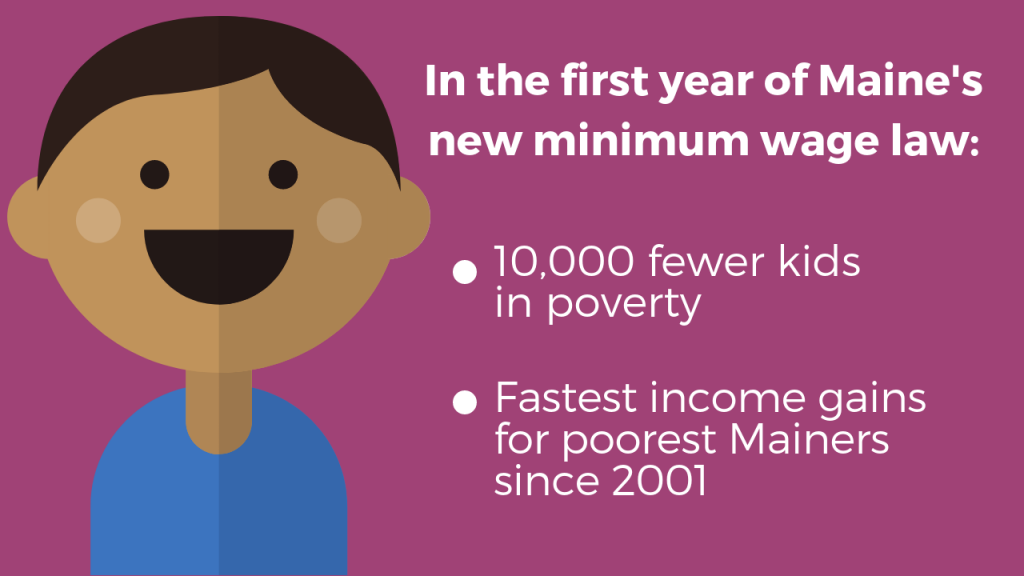Summary:
Maine’s voter-approved minimum wage increase in 2017 led to the fastest wage increase in a decade for low-income Mainers and helped lift 10,000 Maine children out of poverty — a greater number than were brought above the poverty threshold in any other year in the last decade. Those findings, based on new data from the US Census Bureau released earlier this month, indicate that Maine’s minimum wage increase is having a significant impact, especially for low-income families and children.
MECEP’s analysis makes the following findings:
- Mainers who earn the lowest wages saw faster wage growth than any other income group in 2017.
- Low-income Maine households experienced the largest increase in household income since at least 2001.
- The 10 percent increase in household income for the bottom 25 percent of Maine workers stands in sharp contrast to changes in income for the bottom quarter of households in New England (0 percent) and nationally (-1.8 percent).
- Income gains among low-income households resulted in 10,000 fewer Maine children in poverty — the largest decline in child poverty since the current tracking system was implemented in 2005.
- Maine’s decline in child poverty from 2016 to 2017 was larger than the reduction in national or regional child poverty rates over the same period.
All evidence suggests that to date, Maine’s minimum wage law has been a resounding success. Negative effects of the minimum wage increase predicted by its opponents have not come to pass. As previous MECEP analysis demonstrates, job growth has remained steady since the minimum wage increase and workers have not seen their hours cut.
At the same time, the positive effects of the minimum wage are irrefutable. Wages in Maine are up across the board, particularly for Mainers at the bottom of the income distribution, and childhood poverty saw its steepest decline since tracking began. As a result, thousands of children will do better in school, grow up healthier and earn more over their lifetimes.




